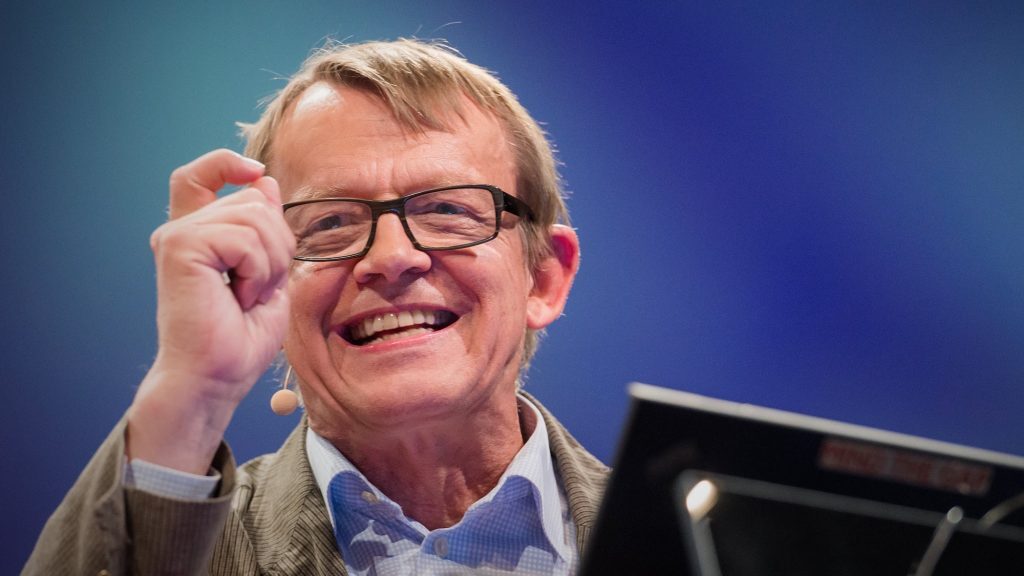“There’s nothing boring about statistics, especially not today, when we can make the data sing,” the great Hans Rosling once said. And sing they did.
Rosling – who died from pancreatic cancer last week aged 68 – was more than a mere statistician, he was that rare kind of genius who could explain the most complex subjects and make them engaging for most.
The Swedish professor called himself an “edutainer” and that he did. His first TED talk in 2006 made him a rockstar, but it was his 2010 documentary for the BCC, called The Joy of Stats, that cemented his reputation. In it, he used statistics – brought to life through his Gapminder foundation – to show humanity’s progress in the last 200 years in 20 countries – all in a mere four minutes. It was fascinating, spell-binding and awe-inspiring. And it was just numbers. But Rosling had that rare gift for making numbers sing.
I’m fascinated by the lives of famous scientists, particularly mathematicians, and have read the biographies of most of the major maths minds. Their breakthroughs, though extraordinary, are hard for us non-mathematicians to understand. Their works is highly technical, inexplicably complex and requires an education in numbers that is just beyond us ordinary folk.
But Rosling succeeded in conveying such complex theories, and with great aplomb. A medical doctor, his realm was that oft-derided field of statistics, which he attempted to illustrate how human existence has gotten better over the centuries.
He charted the evolution of our species and pushed a message that progress was good for humanity, lifting people out of poverty and increasing their lives. He used his remarkable grasp of statistics and his showbiz entertainers way of making them fascinating to do that.
“The only way to reach sustainable population levels is to improve public health. Child survival is the new green,” he told The Economist. “I produce a road map for the modern world. Where people want to drive is up to them. But I have the idea that if they have a proper road map and know what the global realities are, they’ll make better decisions.”
He was relentlessly optimistic that overall our planet has improved itself, but worried that a billion people still lived in poverty. “I’m not an optimist. I’m a very serious possibilist,” he once said of himself.
“Hans taught so many of us to remember – even on our saddest days – that we are all part of an amazing global success story,” Melinda Gates remembered. Known as the wife of billionaire software tycoon Bill, she is one half of the remarkable Bill and Melinda Gates Foundation, which is focussed on uplifting people’s live through fighting poverty, looking for vaccines and solutions for malaria and HIV/Aids and financial inclusion.
“Where others saw nothing more than statistics, Hans saw the chance to tell an incredible human story about our progress against poverty and disease,” Melinda Gates wrote after his death. “A data geek through and through, he used numbers to educate us, to entertain us, and to share his special brand of big-hearted, evidence-based optimism.”
RIP Hans Rosling, you reminded us how far we’ve come and how far we still have to go.
This column first appeared in Financial Mail
